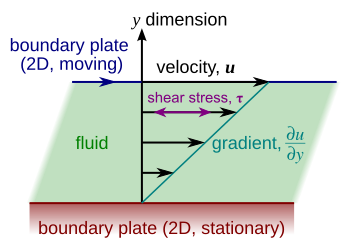Talk:Poise (unit)
| This It is of interest to the following WikiProjects: | |||||||||||
| |||||||||||
[Untitled]
[edit]Many words have two meanings such as 'bat': does it have wings or does it hit a ball?
Poise Pronunciation: 'poiz Function: noun Etymology: Middle English poyse weight, heaviness, from Middle French pois, from Latin pensum, from neuter of pensus, past participle of pendere to weigh -- more at PENDANT
1 : a stably balanced state : EQUILIBRIUM <a poise between widely divergent impulses -- F. R. Leavis>
2 a : easy self-possessed assurance of manner : gracious tact in coping or handling; also : the pleasantly tranquil interaction between persons of poise <no angry outbursts marred the poise of the meeting> b : a particular way of carrying oneself : BEARING, CARRIAGE
- But WP:NOT a dictionary. See Special:Whatlinkshere/Poise. Gdr 16:00, 1 February 2006 (UTC)
If you want, you can disambiguate. I also am not sure why this is designated a stub. I think it says all it needs to. 87.112.2.88 16:20, 27 August 2006 (UTC)
- I agree. Although it could be refined, perhaps, there cannot be so much more that needs to be added. —DIV (128.250.80.15 (talk) 04:52, 16 July 2008 (UTC))
- Is this entry on crack? What the heck does 1P = gram (force) sec cm^-2 mean? Isn't that in direct contradiction to the SI units listed below? - trvce
- The article specifically states that poise is a unit from the CGS system. Same as 'Dyne'. The foot and the pound are still units of measure (and have articles), even if everyone else is using SI. 203.13.3.93 (talk) 03:16, 19 February 2024 (UTC)
Poise is the importance of being properly mannered. Grace and poise are a must have for well- mannered young ladies —Preceding unsigned comment added by 68.217.8.38 (talk) 01:19, 25 September 2008 (UTC)
what about poise in dancing!!!?????!!!
Near-undo of User:Bharathijain edit
[edit]I practically reverted his/her last edit in this page.
I need to say that we value your work and it's not lost at all, neither bad. The only "problem" is that most of the information there should (at least in my opinion) be included in the article about viscosity, rather than this.
And most of it already was there, so I deleted it. I added your estimation about lard (though I don't know at which temperature was that value measured) in viscosity, and kept part of your information in a new section in this, called Use in laboratory. But I deleted your estimation about blood, as it has a completely different value assigned, with a reference. I'm in a hurry and cannot nor know where to check that information, if you know and can could you check if that reference is correct?
I personally used that approximation in a practice (though in our country we use degrees Celsius, so we were taught that water has that viscosity at 20 ºC), and I thought it would be interesting to keep.
The rest of the information (it can be measured with a viscometer, etc.) probably will be deleted for the same reason of my edit.
And sorry about my messy English, I'm actually Spanish. —Nethac DIU (¿?), wuz heer about 16:48, 12 May 2011 (UTC)
- Puedo corregir lo que escribiste si quieres. 190.51.133.138 (talk) 22:24, 9 October 2011 (UTC)
better expression
[edit]a centi-poise is one milli-Pa[scal].sec, if we define Le[gendre] as one cail /sec, so 1 mPa would be 1 Le/m (compare: A/m, V/m, G[ra]y/m ) {cail, c, is chilog[ram] }
Tabascofernandez (talk) 00:27, 15 July 2017 (UTC)
Poises
[edit]I didn't see anything in the article about the plural form of poise. I've seen things saying Poises, which sounds awkward and annoying, but I'm not sure it's incorrect. Anyone know where to find the answer? An update to the article to clarify this also seems like a good idea. 163.116.146.116 (talk) 16:16, 9 August 2022 (UTC)
- It's just an ordinary noun, so it should form the plural in the normal way. Noises doesn't sound odd at all, so I don't see why poises should. Check a few dictionaries to see if they comment on the plural. If we find a reliable source, we can add it to the article. Indefatigable (talk) 18:08, 10 August 2022 (UTC)
So, what is one poise? By definition?
[edit]How is one poise defined? I mean, I get the 'Newton' - force required to accelerate a mass of 1 kg by 1 m/s/s . But 'pascal-second'?
Pascal is how you measure stress/strain, so does one poise mean you have to hold a shearing load of one pascal for one second to stretch the stuff by one meter, or something? 203.13.3.93 (talk) 00:29, 29 January 2024 (UTC)
Replying to myself: this diagram from viscosity helps.  .
.
A viscosity of one poise means it takes one Dyne of force to move 1 sq cm of surface at a rate of 1cm/s if the distance between the surface and base is 1cm. 203.13.3.93 (talk) 03:29, 19 February 2024 (UTC)
- Except - that is for static viscosity, and Poise is supposed to be for dynamic visconsity? There's a missing flid density term in there? Does anyone really care? 203.13.3.93 (talk) 03:35, 19 February 2024 (UTC)

